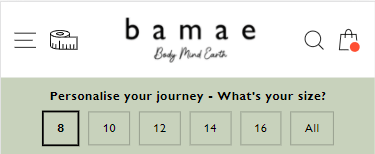Time is our greatest resource – still, many of us don’t know how to make the most of it. It’s easy to sequester our time into ‘work’ and ‘life’, the former encompassing the rigid structure of things we have to do almost everyday, whilst the latter left purposefully ambiguous, the ‘everything else’ that we want to, feel we should, or absolutely need to do. We might have hobbies, or the desire to improve at a skill, or learn something new, but these don’t get very far – they are ultimately judged as unimportant, or too energy-consuming. Though we may have aspirations outside of our current realm of experience we lack even an inkling of where to begin with them. Heavily occupied, tired and without direction we push these ideas to the side, manifesting them only in daydreams or half-measures that never fully take off.
Fortunately, there is wealth of online material that can help us develop our personal aspirations. Looking in the right places can reveal resources that are digestible, encouraging and valuable. With that said, here are some of the best learning tools, tutorials and other open access resources to make the most of your free time. While this is list is far from comprehensive, it might inspire you find something that works around your time, interests and lifestyle.
Education

- Online university lectures: Stanford, Berkeley, Harvard, MIT and UCL, among others internationally, offer free courses and modules in the form of filmed lectures and other learning resources. Generous and in-depth – not a bad way to knock out a few free hours each week.
- TED ed: TED is a non-profit organisation hosting thousands of conferences on an endless variety of topics. Its sister channel on YouTube, TED ed, presents educational videos of an equally impressive variety with appealing visuals, that are very accessible.
- Khan Academy: Though geared towards students, the bank of video lessons amassed on the Khan Academy website and YouTube channel are suitable for all ages and cover subjects from maths, the sciences and engineering to arts and humanities. There are supplementary resources on the website as well as tests and ways to track progress.
Arts

- Drawing tutorials: There are a number of good YouTube channels that comprehensively cover basic and advance drawing techniques. These include: RapidFireArt, Alphonso Dunn, markcrilley, Proko and Emmy Kalia. They are effective at breaking the illusion of inherent talent, showing that anybody can create stunning art with a bit of practice.
- Acting classes: Though most acting instruction is paid, whether in-person or online, there are a few useful free lessons floating around the internet. Among them are masterclasses by Michael Caine for film acting, and Uta Hagen for stage.
- Writing courses: You can improve your writing with a free alternative to the paid writing course, which may not feel like a worthwhile, or practical investment. For a start, there is The Write Practice which has a number of articles on different writing techniques. Meanwhile, The Crafty Writer’s Creative Writing Course offers a basic rundown of story elements.
Music

- Music Theory: Though theory isn’t always essential, it can give you a great foundational knowledge for music, as well as developing your improv and writing skills. Some useful resources are: Musictheory.net and the YouTube channels Rick Beato, Adam Nealy and 12tone.
- Learning guitar: The quickest way to playing an instrument well is hiring a guitar tutor, but thankfully there are less costly alternatives. Whilst YouTube is flooded with guitar tutorials for all levels, there are dedicated channels (such as the rock and pop orientated Marty Music) and well-organised websites (such as Your Guitar Academy) that are suitable for beginners.
- Learning piano: More so than guitar, piano is an accessible instrument, far more novice-friendly and popular than your typical wind or string instruments. Though pianos can be expensive and require space, electric keyboards are a popular alternative that are fun to use, while still being a serious – and versatile – instrument.
Languages

- Duolingo: Currently the most popular free language resource, Duolingo is known for its ‘gamified’ approach to learning. Subjects are divided into bite-size lessons with colourful graphics that teach and test, awarding stars for each one completed. In turn, these are used to unlock more advanced lessons. While the mobile version limits answer attempts on its free version, the website has no restrictions.
- Language podcasts: The podcast format suits language lessons well, given the importance of hearing how a dialect sounds in assimilating it. There are many great free options, such as the CoffeeBreak series which covers French, Spanish, German, Italian, Swedish and Chinese in short, easy to consume episodes – as the name suggests – which give you space to repeat the word or phrase after the instructor.
- YouTube channels: Some might prefer emulating a face-to-face instructor by using video lessons, and find they learn better with a visual element. Again, you are spoilt for choice.
The Easy Languages channel presents a series of street interviews with speakers across the world, with English subtitles, giving you a flavour how foreigners sound in their native tongue.
Meanwhile content creators such as Français Authentique offer an immersive learning experience – in this case teaching in (clear) French with French subtitles.



